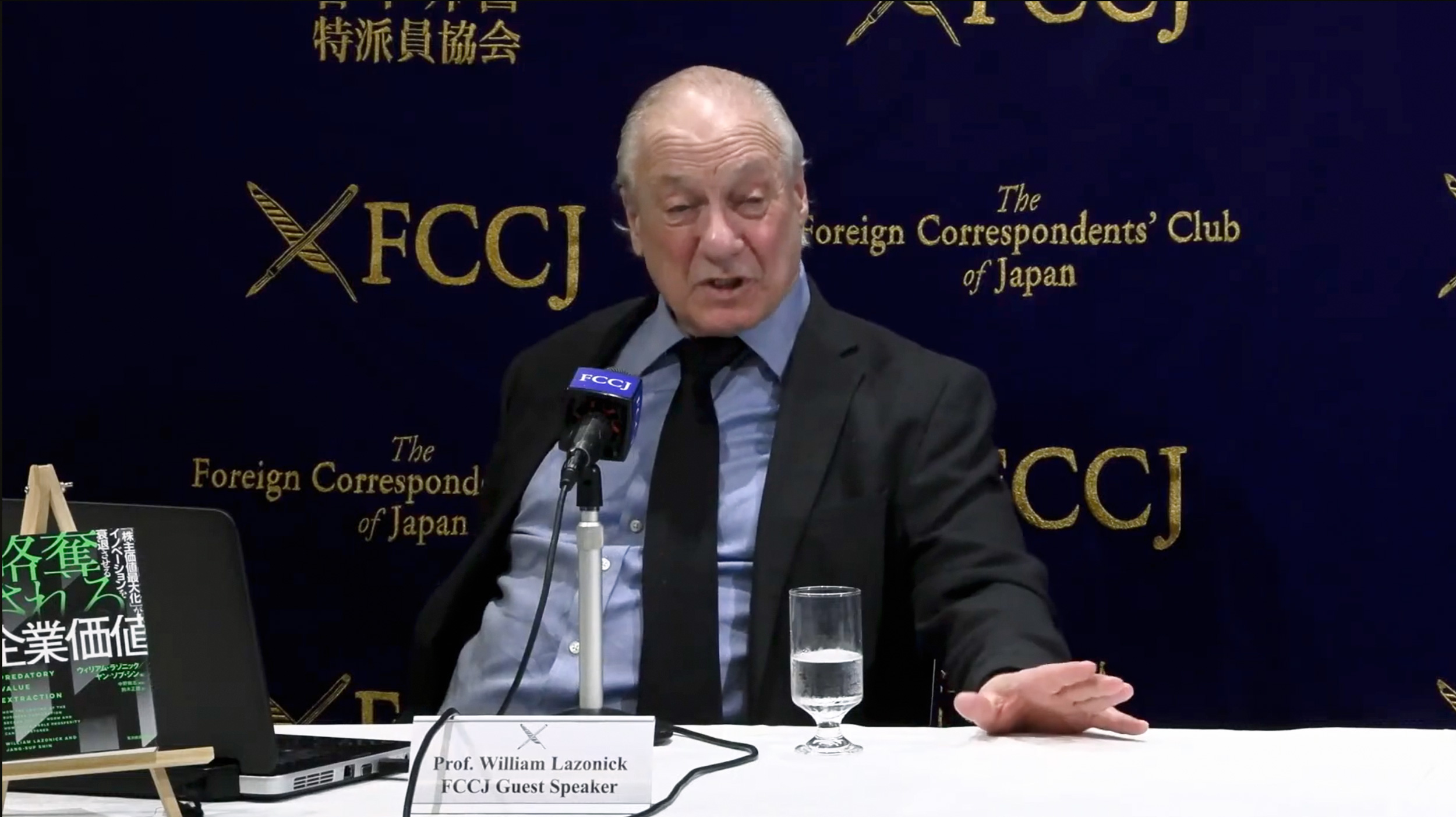Issue:
March 2025
Firms maximize shareholder value at the expense of innovation, economist tells FCCJ event

DeepSeek appears to have upended the notion that massive capital is needed to develop an effective AI platform. China has done it on the cheap, with important ramifications for investors.
It could, for one thing, prompt questions about the way in which companies and markets use mega investments in the tech sector.
An argument seems to be gaining ground that stock markets and corporations – especially in the so-called “magnificent seven” but also in areas ranging from semi-conductors and aerospace to EV batteries and drug development – are concerned that “value extraction” through corporate investment is happening at the expense of “value creation”.
That claim was made recently by the economist William Lazonick, professor emeritus of economics at the University of Massachusetts and head of the Academic-Industry Research Network in Cambridge, MA.
The network has conducted extensive research into the link between industrial innovation and economic development.
Lazonick’s argument comes at a time when key industries in the U.S. and elsewhere are ceding their top place in innovation and productivity rankings to Chinese and other competitors, and as Donald Trump is using tariffs to shield U.S. companies from foreign competition.
“You don’t have a productive economy if you don’t invest (enough) in productive capabilities,” Lazonick said at an event at the FCCJ, blaming leading American companies and others for what he called “predatory value extraction” via excessive executive remuneration and share buyback schemes, along with unduly high dividend payments.
In his latest book, Predatory Value Extraction, which has just been published in Japanese following its earlier publication in English, Lazonick slams the emphasis on maximising shareholder value at the expense of other stakeholders and reinvesting profits in innovation and productivity.
It is this value extraction syndrome, whereby the “people who create value (within companies) are often not the same people as those that extract it”, that has led to corporate underinvestment, he said, noting that the problem has been particularly prevalent among U.S. firms in sectors such as drug development, communications equipment, large commercial airliners, wind turbines, EV batteries, semiconductor fabrication, and AI.
“Corporate financialization” is largely, but not exclusively, an “American disease”, Lazonick said, adding that this was why American semiconductor giants such as Intel and Cisco had ceded their position as industry leaders to Chinese and other competitors.
A similar story is unfolding in the relationship between Boeing and Airbus. Stock markets facilitate corporate value extraction by serving as vehicles for companies to issue shares and conduct share buybacks, Lazonick said. “I am not against stock markets … but I am against the notion that only shareholders have a claim on corporate profits,” he said, in a nod to the Chicago economist Milton Friedman.
Friedman’s book “debunks the notion that the stock market is a value-creating institution,” Lazonick said. Rather, “it is a value-extracting institution” that enables the “looting of U.S. business corporations”.
Lazonick reserved his strongest words for what he claimed was the increasingly prevalent practice of corporate share buybacks. Leading companies offer disproportionate amounts of stock options to senior executives, who in turn enjoy inordinately large gains when these are exercised, he said. This encourages executives to focus on increasing the share price of their companies at the expense of other considerations. “When you maximise shareholder value, productivity falls.”
Share buybacks can amount to “manipulation of share prices,” he added. “Earnings per share rise when buybacks reduce the number of shares in issue and this in turn generates a rise in share prices … If enough people knew what was going on, they might press for change.”
Opposition to the extraction of value from corporations has not yet become a popular movement but is gaining momentum, he said.
Anthony Rowley is a columnist and contributor for the South China Morning Post.

